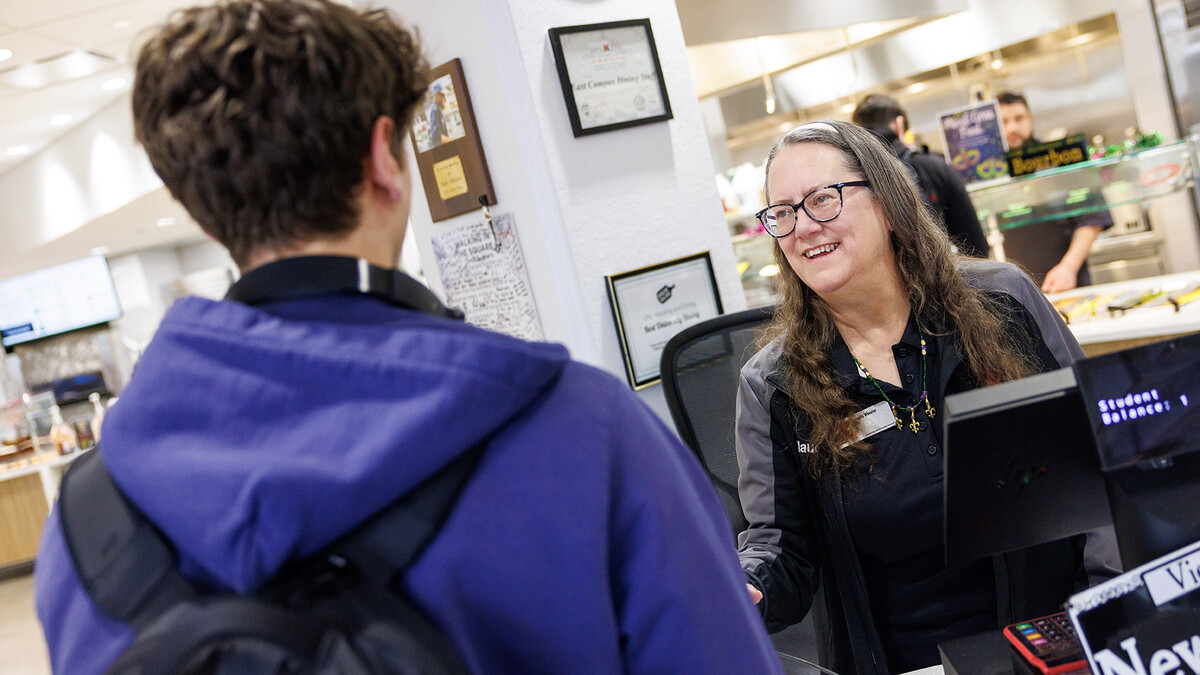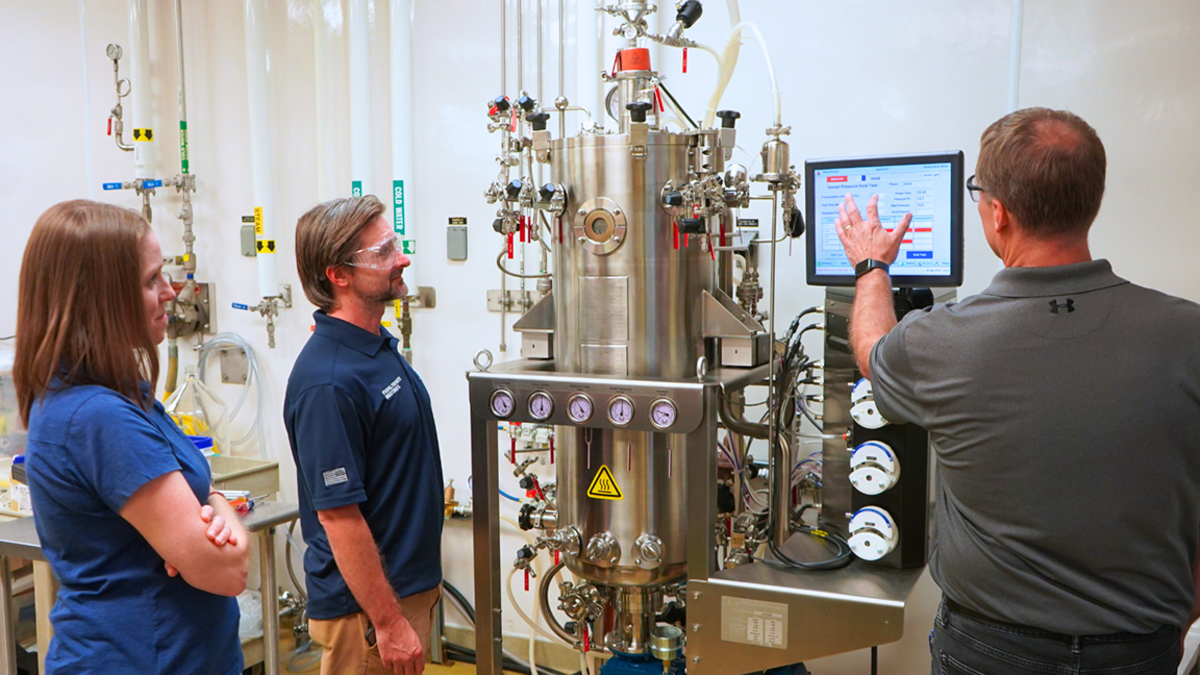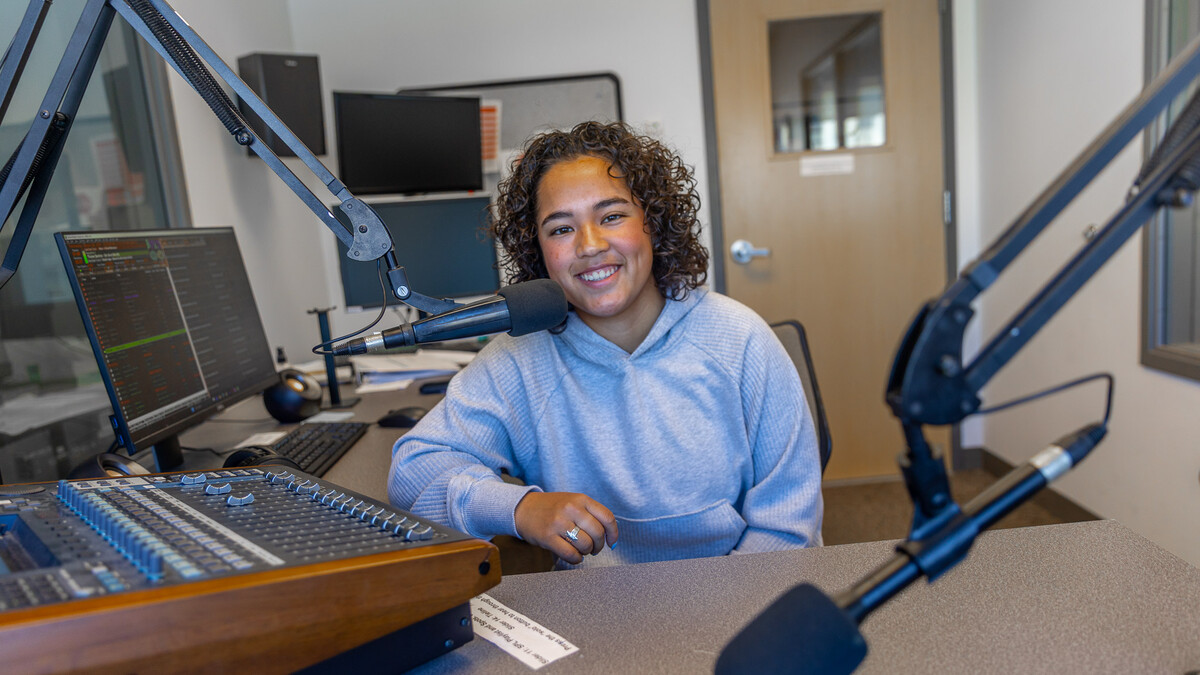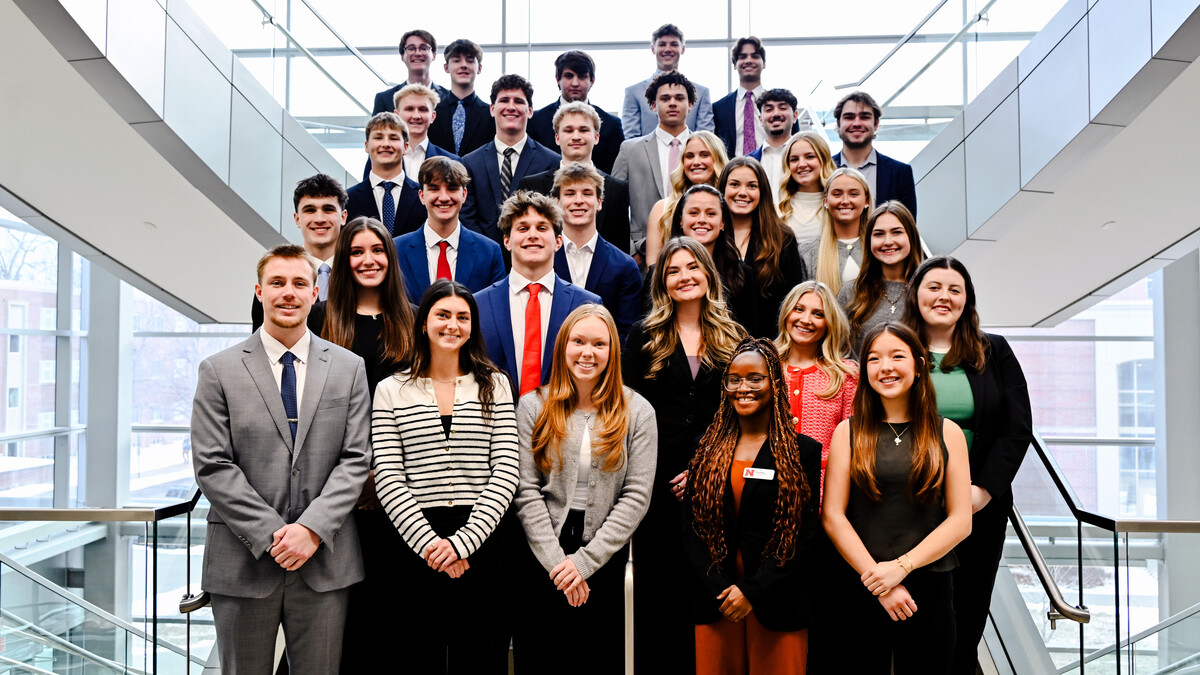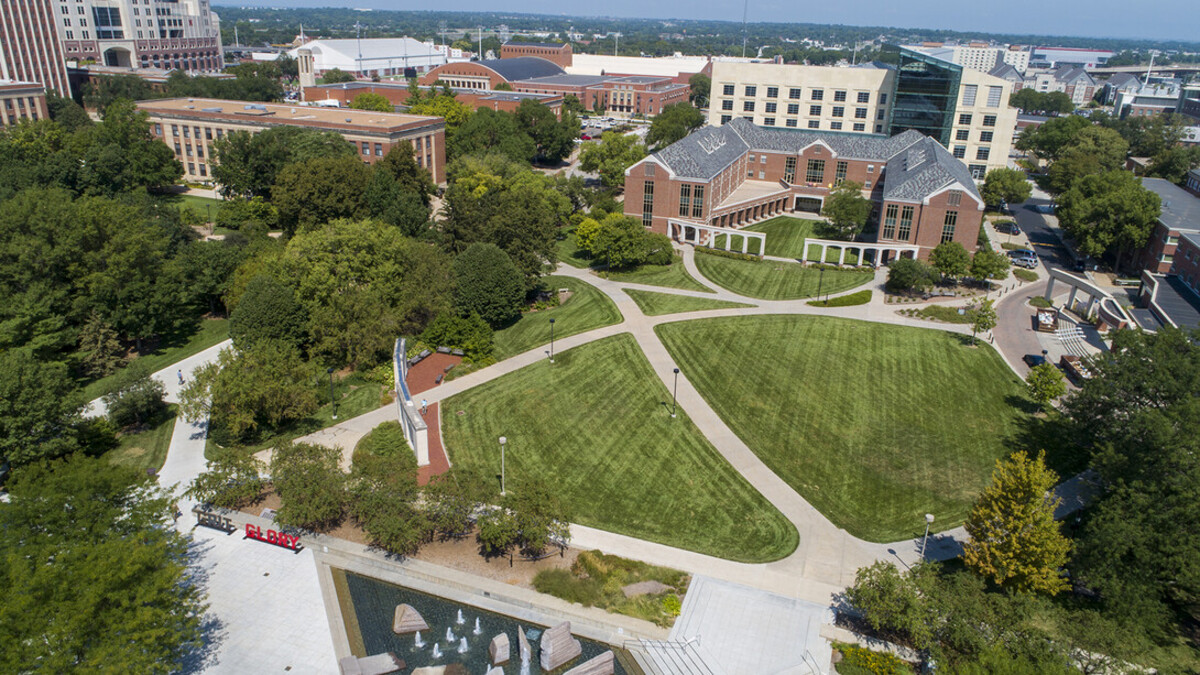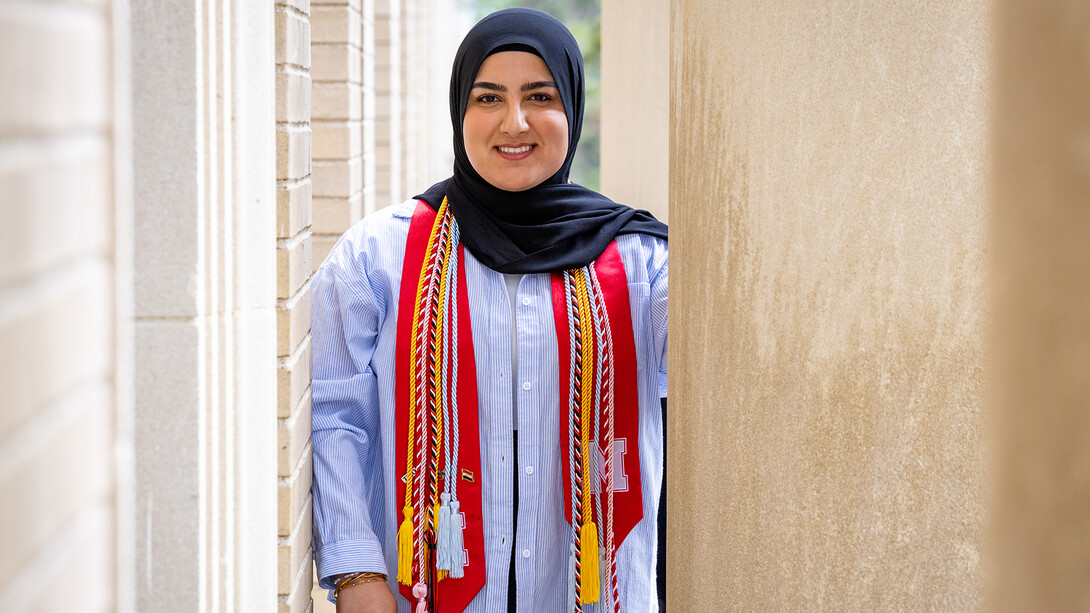
Furqan Mahdi, who will graduate from the University of Nebraska–Lincoln May 17 with a degree in biological systems engineering, said relationships with a series of mentors fostered her growth throughout her college career. As she moves on to her next chapter, Mahdi wants to provide the same support and guidance to others.
“Connections are what got me through college,” she said.
Mahdi, a first-generation college student, grew up in Baghdad, Iraq, before moving at age 12 to Fargo, North Dakota, where she attended high school. Living in an environment in Baghdad when it was not always safe to get an education, she said, helped her recognize how important education is.
“I realized it is such a privilege to be able to get educated, and when I was fortunate to come to the U.S., it was a goal for me to continue to take advantage of that privilege and help others,” Mahdi said.
Mahdi has worked on numerous research projects during her college career, starting not long after she arrived in Lincoln. She first got involved through the First Year Research Experience program and then participated in Undergraduate Creative Activities and Research Experience with Dai Shizuka, associate professor in the School of Biological Sciences. She also got research experience at the University of Nebraska Medical Center through the Nebraska INBRE program and most recently in the lab of Rebecca Wachs, adjunct associate professor of biological systems engineering.
Mahdi, who also participated in the McNair Scholars Program for first-generation students demonstrating academic achievement, said her research advisers allowed her to follow her interests when it came to her work in their labs. The opportunity to explore several science fields was part of what drew her to Nebraska. In the UCARE lab, for example, Mahdi was analyzing videos of golden-crowned sparrows but then was able to learn about how to extract DNA from blood samples as part of the research.
More recently, she worked in Wachs’ orthopedics lab on a project about chronic lower back pain and disc degeneration, but Mahdi, guided by an interest of hers, developed a method of analyzing a type of immune cell and its relation to inflammation.
“I say that’s when I peaked as a scientist,” Mahdi joked. “I was always interested in immunology and how that can impact everything in the human body, so I looked at macrophages.”
Mahdi developed a more timely and cost-effective method of analyzing the macrophages and if they were pro- or anti-inflammatory without destroying the cell, which can be useful in a variety of scientific fields.
Mahdi was the first author on a paper about this method, which was published in Cells Tissues Organs, a journal published by Karger Publishers. She also received an award for the research at a national conference, the Annual Biomedical Research Conference for Minoritized Scientists. At the time, her project was only around 50% finished, she said, but the recognition helped her push to reach the finish line.
“I was still struggling with confidence when it came to my scientific knowledge and my scientific abilities,” Mahdi said. “That (award) motivated me to continue working on the project and have it finished. You don’t win an award about something people don’t care about. I knew if I get this published a lot of scientists are going to use my method to help their research become faster and more efficient.”
Her advisers became mentors that have guided Mahdi to other opportunities. In many cases, one mentor would introduce her to the next adviser or program and usher her to her next chapter. In moments when Mahdi questioned her abilities, these mentors became a support system and inspired her to continue working.
“If I did not have mentors like (Marianna Burks, assistant professor of practice in the School of Biological Sciences, or Wachs) who told me, ‘You can do it,’ I don’t think I would have made it this far,” she said. “Having that push from mentors was really important for me and I would like to continue to do it with my mentees.”
Mahdi has already begun passing on the guidance she received from her own mentors. Mahdi was the president and founder of the Middle Eastern and North African Student Association, served as a senator from the College of Engineering in the Association of Students of the University of Nebraska, and worked as a teacher’s assistant and as a mentor in the First Husker program.
She said all of these roles gave her opportunities for outreach and helping others realize their potential. Most memorably, she got a note from a student in a class where she had been a teacher’s assistant. The student thanked Mahdi for sparking more of her interest in biology and making it easier for her to understand.
“I was like, wow, I was able to make an impact on a student and have them be less scared of science by simply teaching them in a fun way,” she said. “That solidified my reasons of going into academia.”
Mahdi wants to continue building up others as she progresses in her career. She intends to attend the University of Minnesota Twin Cities this fall for graduate school. She wants to pursue a career in higher education and eventually join the faculty at a university so she can include mentorship and instruction of the next generation in her work.
“I knew I wanted to be a researcher, but I thought I would do industry research,” Mahdi said. “I think I would not be as satisfied as I would be in academia, making an impact not just on science but on students.”
